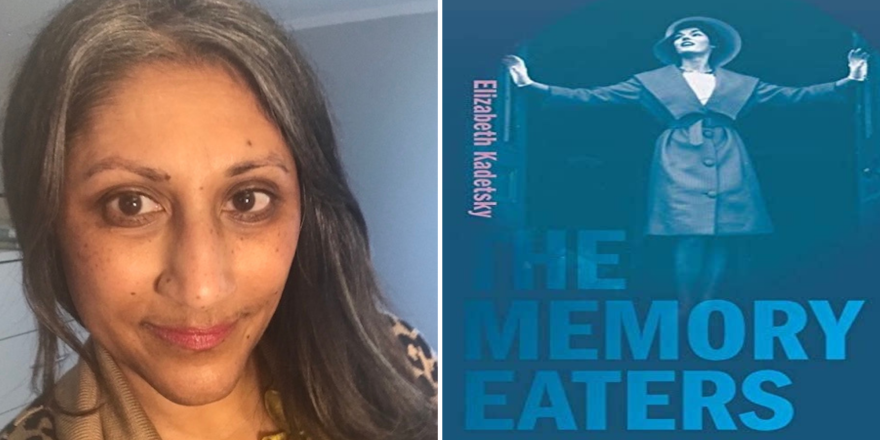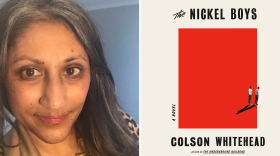Is there such a thing as trauma and pain—both known and unknown—that’s passed from generation to generation? And if so, how do these wounds shape lives in the present and determine life’s outcomes in the future?
When her mother was diagnosed with Alzheimer’s, Elizabeth Kadetsky set out on a feverish mission to answer these questions. In her memoir, “The Memory Eaters,” Kadetsky—who is an associate professor of creative writing at Penn State—details her effort to salvage and piece together her family’s complicated history that progressive memory loss would soon obliterate. In her quest to unpack the past, the author traces her genealogy back 12 generations. She travels across the Northeast to interview immediate and distant relatives. And she pores over old photos and documents in order to plot her family’s history.
When Kadetsky was growing up in New York City, the pains of the past were not talked about. She knew her grandmother was an alcoholic. She knew that one of her aunts had suffered from epilepsy and been institutionalized as a child. But why did her grandmother turn to the bottle? And was there something more to her aunt’s epilepsy story? Might these past traumas have had an impact on her sister’s long-term battle with addiction and homelessness? And finally, could these, and other tragic events, be somehow responsible for her mother’s Alzheimer’s?
Before she was diagnosed with the illness, Kadetsky’s mother was known to periodically “check out” from real life. She seemed to abandon her physical body to inhabit an alternate space far removed from the past and the present. Kadetsky wonders if her mother inadvertently “degraded her own memory…[due] to an unresolved, psychological need to practice avoidance.”
As her mother’s condition worsened, and as her sister dangled between stable and unstable, the frightening reality of the situation took precedence. Kadetsky became their sole caretaker. She traveled frequently between State College and New York. From grocery shopping and home repairs to financial planning, scheduling doctors’ appointments, and figuring out Medicaid coverage for assisted living—Kadetsky did whatever needed to be done. This wasn’t easy. It was hurtful and hard both physically and emotionally. Yet, Kadetsky writes with love for her mother and her sister, for their shared life, and for the New York of her youth—a city, at that time, caught in the throes of a great fiscal crisis, where crime and fear were rampant, but where art and creativity still flourished.
Today, Kadetsky strives to live in the present without being cluttered by the past or the future. In a recent email, I asked Kadetsky if, nine years after her mother’s passing, she has come closer to achieving that difficult goal. “Yes, I think I am closer,” she replied, “To cherish one’s memories without being a slave to them, burdened by them, or unconsciously carrying out their dysfunctions is definitely the goal for me.”
I take it, then, that even though she is in a better place, Kadetsky hasn’t forgotten. As she writes in the conclusion of her memoir, she will never allow the “forgetting” to consume her.
Reviewer Savita Iyer is the senior editor of Penn State’s alumni magazine, The Penn Stater.
“The Memory Eaters” won the 2020 Juniper Prize for Creative Non-Fiction.



